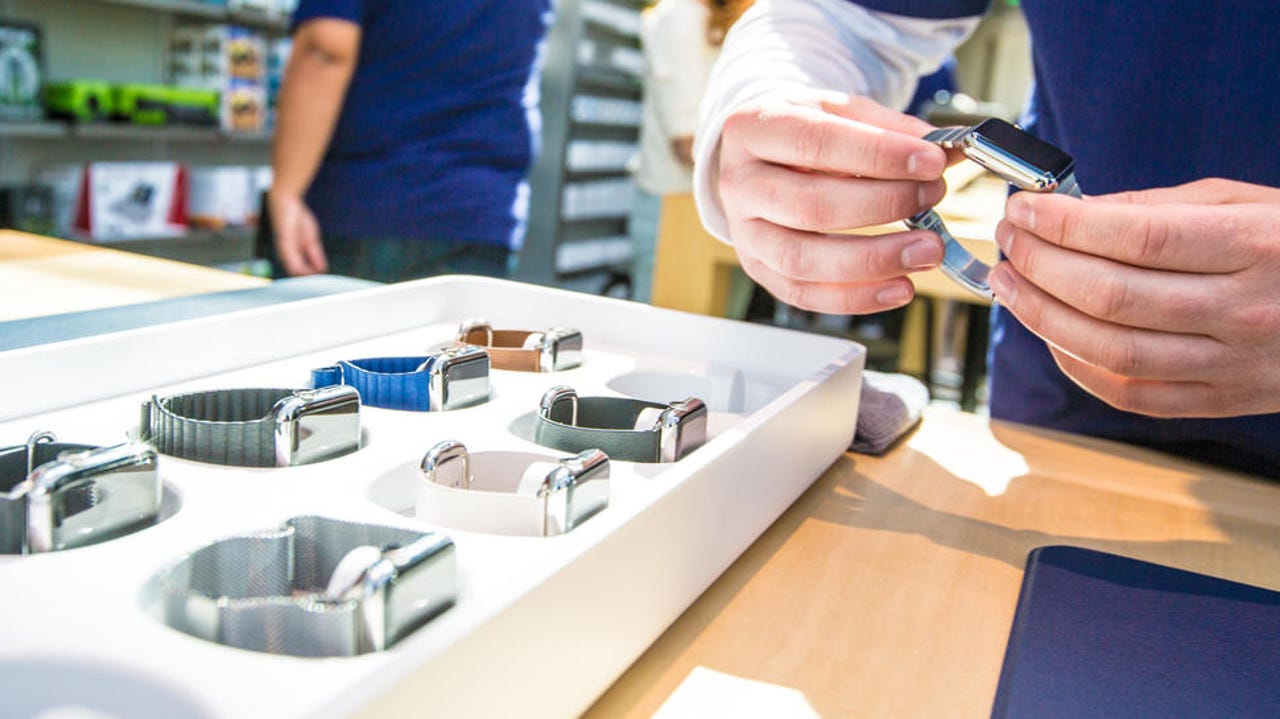The era of tech firms 'copying Apple' is coming to an end


Apple offers smartwatch fittings in its stores. James Martin/CNET
With billions of dollars in the bank, and 35 percent net operating margins you'd think every tech firm would want to be like Apple. But according to analyst Neil Cybart, the envy is wearing off as Apple optimism turns to pessimism, and tech firms no longer want to copy Apple's playbook.
See also: How to run Android on your iPhone, sort of
Featured
Cybart sees the envy eroding in three ways:
#1: Declining Apple envy
Companies are starting to doubt that it's a good idea for a single hardware product that needs regular updating to account for the bulk of their profits. Not only that, but there's a never-ending pressure to update the product, and come up with new killer products.
Instead, Cybart says that "Apple competitors have made the decision to end their quest to be like Apple and are now doubling down on their own core strength: recurring revenue associated with advertising and services."
And it seems that even Apple is getting its services ducks in a row with the first major update to its App Store in years.
#2: Fading hardware envy
There's a "declining fascination with hardware" in Silicon Valley. Cybart says that "Google's foray into hardware has been nothing short of a complete failure," with Motorola being sold to Lenovo and Nest's future "up in the air" now Fadell has announced he's leaving (he was once tipped as a potential Google CEO successor to Larry Page).
And it's not just Google. Cybart says that while Microsoft "showed a clear interest in copying Apple and controlling both hardware and software," the reality is that "Microsoft hardware hasn't exactly caught the world by surprise" and the company's plans to "rethink the laptop" with Surface Book "went nowhere".
Now that iPad sales have imploded, and iPhone sales have turned bad, hardware seems like a bad gamble. And it is. The PC industry is in disarray, most smartphone makers are struggling with razor-thin margins, tablet sales have bombed, wearables don't seem to be transforming into the "next big thing," and no one has yet come up with a fix for looking goofy when you have VR goggles strapped to your head.
Six of the best Android smartphones: June 2016
#3: Fading retail envy
Companies that eyed Apple retail stores are now having second thoughts, and with good reason.
"Microsoft's aggressive retail expansion has led to nothing more than lots of empty retail stores," writes Cybart, while he says that Samsung's store strategy "has no rhyme or reason."
It's really is hard to argue with this analysis. Burning money to try to copy Apple didn't seem so bad when things were rosy over in Cupertino, but Apple gloom is making firms wary when it comes to building temples to their products.
So where's the new envy?
Well, that is the real question, isn't it?
Think the next big thing is VR or AR? Cybart says this has "a long way to go before reaching mass-market appeal."
Voice interfaces? He says these are plagued by "a number of troubling aspects and problems."
Artificial intelligence and learning machines? "Still mostly buzz words."
So there you have it. If you've got any ideas as to what might be the "next big thing," Silicon Valley tech firms would like to hear from you.
See also:
- Top 10 fastest smartphones: Surprise! Apple and Samsung are nowhere near the top
- A major iPhone release every three years: It could work
- Transform your iPhone or Android smartphone into a satellite phone
- Apple's greed is getting in the way of growth and expansion into new areas
- The future belongs to Amazon, not Apple